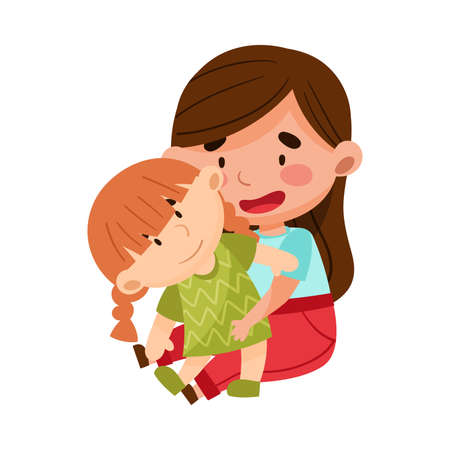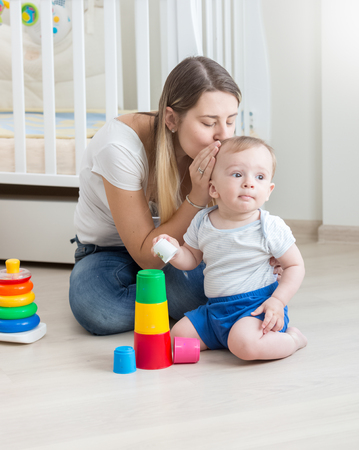1. Understanding Cooperative Play
Cooperative play is a type of play where children work together towards a common goal. Unlike parallel play, where kids play side by side without interacting, or associative play, where they engage in similar activities but without coordination, cooperative play requires teamwork and communication.
How Cooperative Play Differs from Other Types of Play
| Type of Play | Description |
|---|---|
| Solitary Play | Children play alone without interacting with others. |
| Parallel Play | Kids play near each other but do not directly interact. |
| Associative Play | Children engage in similar activities but do not coordinate their actions. |
| Cooperative Play | Kiddos work together, share ideas, and collaborate to achieve a shared goal. |
The Importance of Cooperative Play in Child Development
This form of play helps children develop essential life skills such as communication, problem-solving, and empathy. Through cooperative play, kids learn how to negotiate roles, resolve conflicts, and support their peers. These experiences build a strong foundation for future social interactions and teamwork skills.
Key Benefits of Cooperative Play
- Enhances Social Skills: Kids learn to share, take turns, and listen to others.
- Builds Communication Skills: Children practice expressing thoughts and understanding different perspectives.
- Encourages Problem-Solving: Working together teaches them how to overcome challenges as a team.
- Cultivates Empathy: Understanding the feelings of their peers fosters kindness and cooperation.
- Develops Teamwork Abilities: Learning to collaborate prepares them for group tasks in school and beyond.
Examples of Cooperative Play Activities
You can encourage cooperative play with simple activities like building a tower with blocks together, playing board games that require teamwork, or engaging in group storytelling where each child adds to the story. These activities help reinforce the importance of working together while making learning fun!
2. Building Teamwork Through Play
Cooperative play is a powerful way for children to develop teamwork skills. Through shared activities, kids learn how to collaborate, take on different roles, and work together toward a common goal. These experiences help them build essential social skills that will benefit them in school, friendships, and future careers.
Learning to Collaborate
When children engage in cooperative play, they practice working with others to achieve a shared objective. Whether they are building a tower with blocks or playing a team sport, they must communicate, listen to each other’s ideas, and make decisions together. This process teaches them the value of teamwork and helps them understand that everyone’s input is important.
Sharing Responsibilities
Cooperative play also encourages children to divide tasks and take responsibility for different aspects of an activity. For example, in a pretend play scenario like running a “restaurant,” one child might take orders while another prepares the food. By assigning roles and working together, they develop problem-solving skills and learn how to rely on one another.
Examples of Shared Responsibilities in Play
| Activity | Roles & Responsibilities |
|---|---|
| Building a Fort | One child gathers blankets, another arranges chairs, and others secure the structure. |
| Playing House | One child pretends to cook, another sets the table, and someone else plays the role of a guest. |
| Group Art Project | One child draws outlines, another colors in the shapes, and another adds decorations. |
Working Toward Common Goals
A major benefit of cooperative play is learning how to set and achieve group goals. Whether its completing a puzzle together or winning a relay race as a team, children experience the satisfaction of collective success. This teaches them patience, persistence, and how to celebrate achievements with others.
Encouraging Positive Teamwork at Home
Parents can foster teamwork by providing opportunities for cooperative play at home. Simple activities like family board games, group storytelling, or collaborative craft projects help children develop these essential skills in a fun and supportive environment.

3. Developing Social and Communication Skills
Cooperative play is a powerful tool for helping children develop essential social and communication skills. Through shared activities, kids learn how to express themselves, listen actively, and resolve conflicts in a constructive way. These skills are crucial for building healthy relationships and working effectively with others.
Encouraging Verbal and Nonverbal Communication
When children engage in cooperative play, they practice both verbal and nonverbal communication. They learn how to use words to express their needs, share ideas, and give instructions while also picking up on body language, facial expressions, and tone of voice.
| Type of Communication | How It Develops in Cooperative Play |
|---|---|
| Verbal Communication | Children practice speaking clearly, explaining ideas, and negotiating roles within the game. |
| Nonverbal Communication | Kids learn to interpret gestures, facial expressions, and body language to understand their peers’ emotions. |
The Importance of Active Listening
Active listening is a key skill that children develop through cooperative play. When playing together, kids must pay attention to their peers words, follow directions, and respond appropriately. This helps them understand different perspectives and strengthens their ability to communicate effectively.
Ways Kids Practice Active Listening:
- Pretend Play: Children must listen carefully to follow the storyline and contribute meaningfully.
- Building Games: Following step-by-step instructions from teammates helps strengthen listening skills.
- Board Games: Paying attention to rules and taking turns requires focused listening.
Learning Conflict Resolution Skills
Inevitably, disagreements arise during playtime. However, cooperative play provides a safe space for children to learn how to handle conflicts in a positive way. Whether deciding who gets the next turn or figuring out a fair solution to a problem, kids develop conflict resolution skills that will serve them throughout life.
Steps in Conflict Resolution During Play:
- Identifying the Problem: Encouraging kids to state what they disagree about calmly.
- Listening to Each Other: Teaching them to hear each others perspectives without interrupting.
- Finding a Solution Together: Helping them brainstorm fair solutions that work for everyone.
- Making a Compromise: Encouraging them to agree on a solution that satisfies all players.
The ability to communicate effectively and resolve conflicts is an important life skill that starts developing at an early age. Cooperative play creates natural opportunities for children to practice these skills in an enjoyable and meaningful way.
4. Emotional Growth and Empathy
Cooperative play is a powerful way for children to develop emotional intelligence. When kids play together, they learn to recognize emotions in themselves and others, helping them build essential social skills like empathy, patience, and understanding.
Understanding Others Feelings
Through cooperative play, children experience different perspectives. Whether they are working as a team to complete a puzzle or taking turns in a group game, they begin to understand how their actions affect others. This awareness fosters compassion and strengthens friendships.
Building Patience and Cooperation
Playing with others requires patience. Kids must wait for their turn, listen to teammates, and sometimes compromise to keep the game going. These moments help them practice self-control and develop a cooperative mindset that will benefit them throughout life.
How Cooperative Play Encourages Emotional Growth
| Key Skill | How It Develops Through Play |
|---|---|
| Empathy | Children learn to recognize emotions in their peers and respond with kindness. |
| Patience | Waiting for turns and sharing responsibilities teaches self-control. |
| Understanding Perspectives | Role-playing games help kids see the world from different viewpoints. |
| Conflict Resolution | Working through disagreements helps children practice problem-solving skills. |
The Role of Parents and Caregivers
Parents and caregivers can encourage emotional growth by guiding children during playtime. Simple actions like asking, “How do you think your friend feels?” or modeling positive interactions can reinforce empathy and social awareness.
5. Encouraging Cooperative Play at Home and School
Cooperative play helps children develop teamwork, communication, and problem-solving skills. Parents and educators can create environments that encourage this type of play by introducing activities that promote collaboration. Here are some simple ways to foster cooperative play both at home and in the classroom.
Creating a Cooperative Play Environment
Setting up the right environment is key to encouraging cooperative play. Consider these strategies:
- Provide Open-Ended Toys: Blocks, building sets, and pretend play items allow children to work together and use their imagination.
- Create Shared Goals: Activities with a common objective encourage teamwork and communication.
- Model Cooperation: Show children how to take turns, share, and support each other through your own actions.
- Praise Teamwork: Recognizing and reinforcing positive interactions encourages children to keep working together.
Games and Activities That Promote Teamwork
Certain games naturally encourage cooperation by requiring players to work together toward a shared goal. Below are some great options for fostering teamwork:
| Game/Activity | Description |
|---|---|
| Puzzle Building | A group works together to complete a large puzzle, promoting patience and collaboration. |
| Scavenger Hunt | Children team up to find hidden objects based on clues, encouraging communication and problem-solving. |
| Silly Relays | A relay race where participants must complete fun challenges while passing an object between teammates. |
| Dramatic Play | Pretend play scenarios, such as playing house or running a pretend store, require cooperation and role-playing. |
| Tower Building Challenge | A group works together using blocks or cups to build the tallest stable tower possible. |
The Role of Parents and Educators in Cooperative Play
The guidance of adults plays an essential role in fostering cooperative play. Here’s how parents and teachers can support this development:
For Parents:
- Encourage Group Activities: Arrange playdates with games that require teamwork.
- Create Family Challenges: Engage in household tasks like cooking or gardening as a team.
- Avoid Overly Competitive Play: Focus on activities where success depends on cooperation rather than individual victory.
For Educators:
- Use Group Projects: Assign classroom tasks that require students to collaborate.
- Create Partner Assignments: Pair students for learning activities to build cooperative skills.
- Mediating Conflicts Positively: Teach conflict resolution techniques when disagreements arise during group play.
The Long-Term Benefits of Cooperative Play
The social skills developed through cooperative play extend far beyond childhood. Children who engage in teamwork-based activities learn how to communicate effectively, handle conflicts constructively, and support one another—skills that are essential throughout life.


